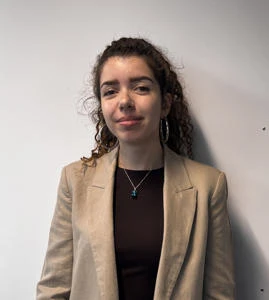
Connect
About
Mercedes Tejería-Martínez (Cantabria, 1999) is a PhD candidate in Economics and Statistics at the University of Cantabria, in collaboration with the University of the Basque Country and the University of Oviedo. Her research focuses on the measurement of inequality, health, and welfare, with a particular interest in the application of advanced statistical methods to economic analysis. She is currently developing her doctoral thesis under the supervision of Vanesa Jordá Gil and José María Sarabia Alegría, within the framework of the “Concepción Arenal 2022” predoctoral fellowship.
Since 2024, Mercedes has been collaborating with the International Labour Organization (ILO), where she contributes to research on inequalities in the world of work. In this role, she is actively producing several policy briefs aimed at informing decision-making and shaping inclusive labor policies. In addition, she has worked at the University of Cantabria on projects related to welfare analysis and health economics, and gained early research experience as an intern at the Valdecilla Health Research Institute (IDIVAL) with the Public and Health Economics Research Group. Mercedes has presented her research at international conferences such as the Seventeenth Winter School on Inequality and Social Welfare Theory, the XXX Public Economics Meeting, and the XIII World Economy Meeting. She has also taught undergraduate courses in statistics and applied economics at the University of Cantabria, as well as short courses on R for statistical analysis.
Her academic background includes a Master’s degree in Economics: Instruments of Economic Analysis (Extraordinary Award), a Master in Administration and Management of Health Services, and a Bachelor’s degree in Economics (Extraordinary End of Degree Award). She has published articles in Empirical Economics, Scientific Data, and Health Policy OPEN, and actively engages in science communication initiatives such as the European Night of Researchers and Science Week.